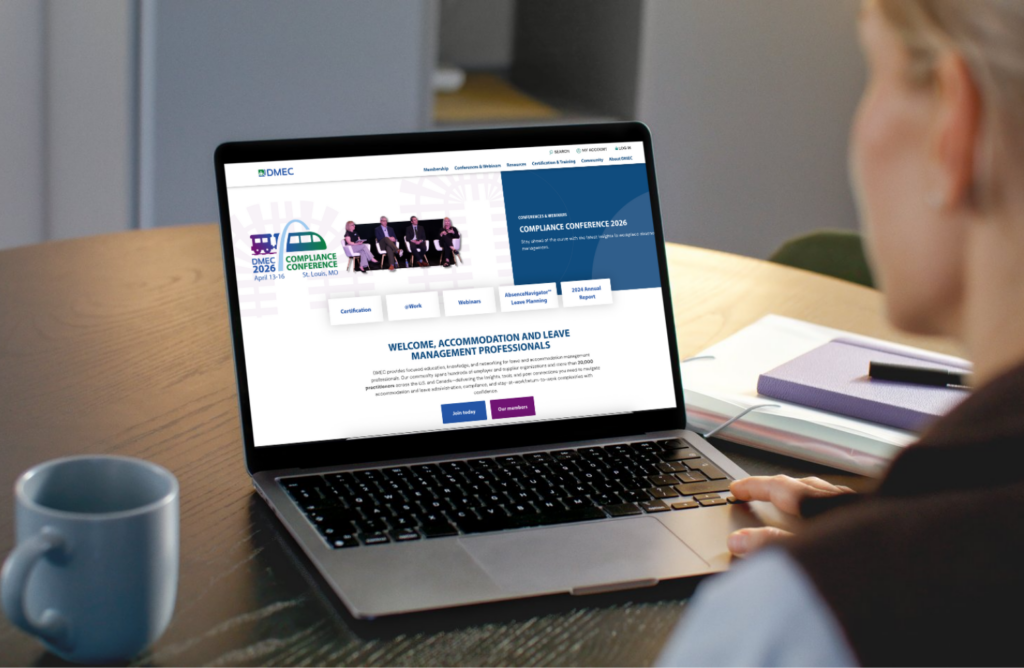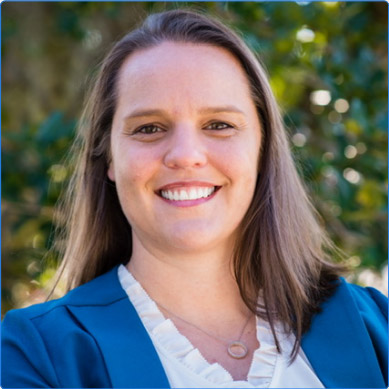How do you define leadership? Ashleigh Brock, JD, and Keemia Vaghef, PhD, winners of the 2023 DMEC Emerging Leader Award, share thoughts on leadership; programs and approaches they designed to enhance absence and disability management processes; and what they advise other emerging leaders to consider.
The DMEC Emerging Leader Award, which has been given out annually since 2019, celebrates industry professionals who take a creative approach to improving absence and disability management processes to enhance the employee experience. As leave laws increase on local, state, and federal levels, integrated absence management professionals are doing more with less and finding innovative ways to support employees during vulnerable times in their lives while also ensuring employer compliance.
And judging from the quality of individuals nominated this year, who meet the award qualifications of fewer than 10 years in the industry, the future is bright.
“It is impressive to see the dedication of these two professionals, who apply creative problem-solving to everyday issues and go above and beyond their daily work responsibilities,” said Terri L. Rhodes, DMEC CEO. “I was pleased to recognize these women, who have distinguished themselves in ways that deliver unique value to their employers and to the absence and disability community.”
Defining Leadership

This year’s award winners describe leaders as people who build relationships, create inclusive environments, and encourage employees to develop (and trust) their own voices. Interestingly enough, both winners were nominated, in part because they embody those characteristics, which they demonstrated by identifying employee and industry needs and designing effective solutions.
Brock, the lead compliance coordinator for the city of Memphis, has introduced and redesigned effective programs for city employees that, as she said, “meet employees where they are.” From introducing flexible work and telework processes that help employees stay at work when possible to streamlining disability claims processes and designing a mental wellness guide for the city’s first responders to clearly explain the resources available to them.
“We take mental health and wellness very seriously at the city,” she said. Recognizing short attention spans, Brock ensured the new guidebook includes FAQs that are, as she said, “straight to the point” with instructions on how an employee initiates a claim and what steps to follow.
She also created a step-by-step process flow for city workers who file disability claims, which helped connect the dots between internal partners to ensure everyone has actionable information and feels supported during employee transitions.
A legal professional who excels in dispute resolution and finds it rewarding to streamline processes that make accessing absence and disability policies easier, Brock is guided by a desire to be fair, flexible, and firm. That approach served her well during recent union negotiations. As the city’s chief negotiator, Brock used the interactive process for the Americans with Disabilities Act to identify union member needs as well as challenges and to reach a compromise. And while she acknowledges that “negotiation time is a very colorful time here at the city,” she also notes, “It is an opportunity to partner with our unions.”
Her ability to identify and respond to employee needs has been key to Brock’s success with unions and with developing processes to support city employees. “You have to have a passion for the absence management process,” she noted.
And while much of the work that absence and disability managers do is behind the scenes. Brock said that winning the 2023 DMEC Emerging Leader Award “brought it home that I am really making a difference. It really touched my heart.”
Challenging the Status Quo

In addition to the emotional components of absence and disability management work — much of which occurs during vulnerable times in employees’ lives — there are scientific aspects to the field that help quantify success and help employers design programs to achieve intended goals.
Vaghef, director of analytics consulting, leave solutions at Alight, is passionate about helping employers build customized benchmarks that help them achieve their absence and disability management goals.
Her willingness to address and dispel myths that prevent teams from using benchmarking effectively has helped her retool how Alight and its clients use data to better serve employees. In addition to her skill within the scientific realm of benchmarking, Vaghef was nominated for the Emerging Leader Award in part because of her desire to help professionals embrace the need to assess and fine-tune the benchmarks they use for this work. She is passionate about the use of empirical evidence and statistical metrics that help absence and disability managers gauge success to ensure their programs hit intended goals and serve people in need.
Learning how benchmark data can guide team questions and help employers dig deeper to find ways that help them improve absence management programs has widened peoples’ perspectives. The key is to set the benchmark strategically, which can be tricky. She likens it to a limbo bar, which if set too high, “is not entertaining” to watch, and if set too low, involves “risky stretching.”
Recognizing the need to set a high bar when it comes to performance, Vaghef also talks about the value of leaders trusting employees to reach (or exceed) the goal in their own way. She refers to John C. Maxwell, a leadership coach, who describes leaders as those who know the way, go the way, and show the way. Vaghef recommends swapping the “and” for an “or,” and believes effective leaders are found at all levels of seniority. The key is to inspire professionals to find a path that suits them and act as a North Star that guides their career journey.
Guiding that journey starts with active listening and the ability and willingness to understand, holistically, how a team members contributes to the greater goals. “The leaders who have taken the time to really understand how my role impacts big-picture; that’s been, I think, quintessential actually in moving the ball forward as well as my personal success,” Vaghef says. “They’ve been able to understand when I come to them with an obstacle or an issue; they understand where those impediments are and how they would essentially impact my success. A good leader is a good listener and not just like waiting to speak but truly listening; being a sounding board; getting me motivated and activated.”
That is, in part, what good benchmarking and data management can do for absence and disability management teams. Vaghef helps teams use data more effectively to identify gaps between theory and application by using benchmarks to assess program success and to chart new paths. For example, while most organizations develop absence and disability management programs to support employees, and attract and retain them, they may not know how to assess success or know how they compare with other, similar employers. Assessing the data can help employers tweak programs to improve outcomes, which is empowering.
Sharing insights from her “research on the construct of leadership,” Vaghef talks about the value of knowing what good performance looks like for employee performance as well as with absence and disability management programs. Effective leaders help their individual employees recognize how their work supports the organization’s larger goals, remove impediments, act as a sounding board, and provide support.
The importance of active listening was echoed by both award winners, who encourage their colleagues at all levels of their career, to champion the needs of all employees, support diversity, equity, and inclusion efforts that create and nurture positive work environments, and to constantly question the status quo.
Taking time to listen carefully has helped Vaghef and Brock design solutions and approaches that improve absence and disability management approaches. Both are committed to working collaboratively to redesign industry approaches to improve efficiency and efficacy, and experience. It will be, as Rhodes noted during the awards ceremony at the 2023 DMEC Annual Conference, exciting to see how the work of these two emerging leaders enhances our industry.











